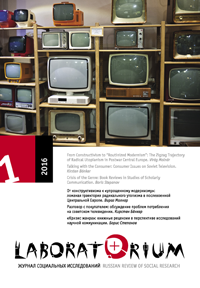From Constructivism to “Routinized Modernism”: The Zigzag Trajectory of Radical Utopianism in Postwar Central Europe
From Constructivism to “Routinized Modernism”: The Zigzag Trajectory of R adical Utopianism in Postwar Central Europe
Author(s): Viraґg MolnaґrSubject(s): Social Sciences, Architecture, Social development, Rural and urban sociology, Sociology of Culture, Sociology of the arts, business, education, Environmental interactions, Sociology of Politics, Sociology of Art, Geopolitics
Published by: Центр независимых социологических исследований (ЦНСИ)
Keywords: Radical Utopianism; Social Change; Built Environment; Intellectual Exchange; Cultural Politics;
Summary/Abstract: This article uses the example of constructivist architecture to show how radical utopianism influenced postwar plans for the large-scale transformation of the built environment in a significant but highly fragmentary fashion. Rather than dominating a longer period and slowly fading away, constructivism recurred in Hungary in several short but intensive episodes. The analysis focuses on two crucial episodes—plans for the post-1945 reconstruction of Budapest and the construction of a “strip house,” a massive collective housing superbloc — to show how constructivism came to be coupled with various social and political agendas that often caused its demise; yet it left a complex and lasting legacy even when it failed. The article also argues that the zigzag trajectory of postwar constructivist architecture is largely a function of Hungary’s interstitial geopolitical and cultural position between East and West. As a result, Hungary, together with other Central European countries, offers an example that can illuminate the nonlinear ways in which intellectual ideas and cultural models circulate on regional and global scales.
Journal: Laboratorium. Журнал социальных исследований
- Issue Year: 8/2016
- Issue No: 1
- Page Range: 5-29
- Page Count: 25
- Language: English

